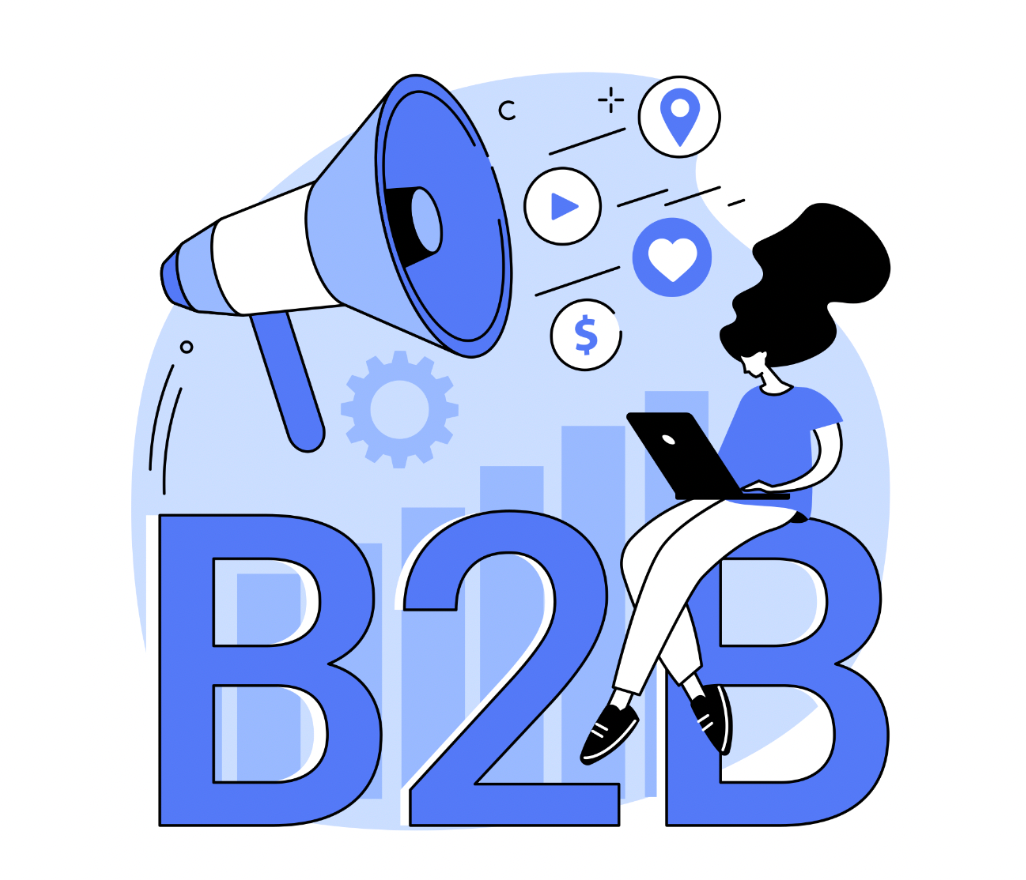What Are The Key Components Of A Successful Marketing Strategy In The B2B Sector?
A well-crafted marketing b2b strategy is vital for B2B (business-to-business) success. Unlike B2C (business-to-consumer) marketing, business-to-business marketing requires a distinct approach tailored to businesses' unique needs and characteristics.
B2B organisations must consider several key components when formulating their marketing strategies to maximise growth and achieve sustainable results.
In this blog post, we will delve into the essential elements that contribute to successful marketing in B2B.

In-Depth Market Research and Customer Understanding To Reach Your Intended Target Audience
The foundation of any successful marketing strategy, regardless of the sector, lies in comprehensive market research, competitor analysis and a deep understanding of the target audience. In any digital marketing plan for the B2B sector, organisations must conduct thorough research to identify their target market, the competitive landscape, assess market trends, and gather insights into customer behaviour, pain points, and preferences across customer segments. This knowledge allows marketers to align their strategies with the specific needs of their target audience and develop compelling value propositions.

Clear Value Proposition and Differentiation With Your Target Market
In the B2B digital marketing space, businesses often make purchase decisions based on the value they perceive from a product or service. A strong value proposition that clearly articulates the offering's benefits and unique selling points is crucial.
To stand out from competitors, businesses must effectively identify and communicate their points of differentiation to prospective customers. This could include factors such as cost savings, increased efficiency, superior customer service, or technological advancements.
Relationship Building and Networking
Building strong relationships with key stakeholders is a cornerstone of a successful B2B marketing strategy. In this sector, decision-making is often a collaborative effort involving multiple individuals or departments.
Establishing trust and credibility through networking, industry events, conferences, and targeted outreach helps foster long-term relationships and enhances the chances of securing business deals.
Moreover, nurturing existing customer relationships is equally important to drive repeat business and generate referrals for new potential customers too.

Content Marketing and Thought Leadership
Content marketing plays a pivotal role in B2B marketing, allowing organisations to showcase their expertise and provide valuable insights to their target audience.
Developing high-quality educational content such as case studies, blog posts, and webinars establishes credibility and positions the company as a thought leader in its industry. Businesses can attract prospects and nurture leads throughout the buyer's journey and buying process by using valuable information, addressing pain points and offering solutions.
Multi-Channel Approach and Personalisation
B2B buyers are active across various channels, and successful marketing strategies leverage this by adopting a multi-channel approach.
This involves integrating online and offline channels such as websites, social media marketing, email marketing, events, and direct mail to reach potential customers at different touch points.
Personalisation is key, as it enables tailored messaging that resonates with individual decision-makers and provides a more relevant customer experience throughout the sales cycle, increasing engagement and conversion rates.

Measuring and Analyzing Key Metrics
Effective marketing strategies rely on data-driven decision-making. B2B marketers must establish clear key performance indicators (KPIs) aligned with their business goals and continuously measure and analyse them. Metrics such as lead generation, conversion rates, customer acquisition cost, customer lifetime value, and return on investment (ROI) help evaluate the effectiveness of marketing campaigns, optimise strategies, target customers, and make informed adjustments based on performance insights.
Search Engine Optimisation (SEO)
In today's digital age, optimising online visibility is crucial for B2B organisations. Search Engine Optimisation (SEO) techniques help improve a company's website rankings in search engine results pages, increasing organic traffic and visibility.
By using search engines, conducting keyword research, optimising on-page elements, creating valuable content, and building authoritative backlinks, B2B marketers can enhance their online presence and attract qualified prospects actively searching for their products or services.

Continuous Optimisation and Adaptation
In the fast-paced business world, it is crucial for B2B marketers to stay agile and adapt their strategies based on new market dynamics and changing customer preferences. Continuous optimisation involves regularly evaluating marketing activities, analysing performance metrics, and making data-driven decisions to improve results.
Using A/B testing, marketers can experiment with different messaging, content formats, social media platforms, and channels to identify what resonates best with their target audience. This iterative approach allows for continuous improvement, ensuring that marketing efforts stay relevant, effective, and aligned with business and marketing goals, increasing brand awareness.
By incorporating these additional components into a B2B marketing strategy, businesses can enhance their competitive edge, drive growth, and achieve long-term success in the dynamic, B2B marketing landscape. Embracing a holistic and adaptable approach to the marketing mix will enable organisations to thrive and stay ahead of the curve in an ever-evolving market.
Partnerships and Collaborations
Collaborating with complementary businesses in the B2B sector can open up new opportunities for the growth and expansion of your own company. Strategic partnerships can provide access to a wider customer base, enhance product offerings and customer reach, and create mutually beneficial relationships.
B2B organisations can explore partnerships through joint marketing initiatives, co-creating digital content together with marketing teams, sharing resources, or even forming alliances for product development. By leveraging each other's strengths, businesses can tap into new markets, increase brand visibility, and establish themselves as industry leaders.
Customer Success and Retention Strategies
While acquiring new customers is essential, retaining existing customers and ensuring their success is equally crucial in the B2B sector. Implementing effective customer success and retention strategies can lead to increased customer satisfaction, loyalty, and advocacy.
B2B organisations should focus on providing exceptional customer service, delivering on promises, and continuously engaging with customers to understand their evolving needs. Proactive communication, regular check-ins, and personalised support can go a long way in building strong relationships and fostering customer loyalty.
Improve your B2B Marketing Efforts With Social Media Time
Crafting a successful marketing strategy in the B2B sector demands a thorough understanding of the market, a well-defined value proposition, relationship building, content marketing, a multi-channel approach, and data-driven decision-making.
By focusing on these key components, top B2B marketing organisations can position themselves as industry leaders, build trust with current customers and prospects, and achieve sustainable growth in a competitive business landscape. Embracing these key elements also empowers businesses to create a robust marketing strategy that connects with their target audience and generates long-term business success.
Grow your business with Social Media Time today!










